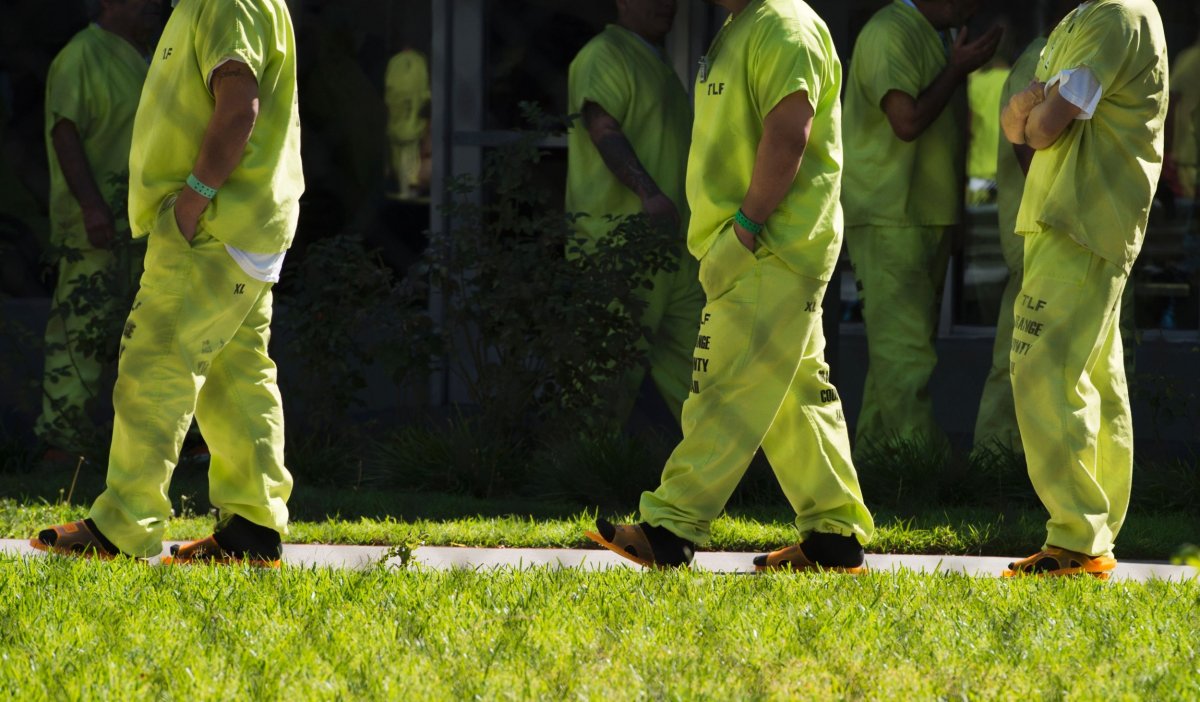In a welcome bipartisan moment, Senators Richard Durbin and Lindsey Graham introduced a revamped version of the Dream Act, a long-stalled proposal to grant legal status to young immigrants brought here as children.
Like earlier versions, the Dream Act's latest iteration would not help youth who have committed a variety of crimes.
Though a White House official said that the president is unlikely to support it, immigrants' rights groups applauded Durbin and Graham and launched campaigns to pressure more legislators to follow suit.
A day later, news broke that immigration officials are planning raids against teenagers suspected of gang membership. Immigrants' rights groups yelled in protest.
Despite the starkly different reactions, the Dream Act of 2017 and anti-gang immigration raids reflect the same faulty assumption: that some immigrants are good and some are bad and that it is possible to neatly distinguish between the two.
This is not a new division. President Obama famously claimed that his administration's immigration enforcement actions target "Felons, not families. Criminals, not children. Gang members, not a mom who's working hard to provide for her kids."
President Trump and Attorney General Sessions have repeatedly harped about the dangers of transnational gangs and claimed that their immigration policies are making the nation safer.
State and local officials frequently adopt a similar position. Even in liberal strongholds, Democrats frequently push pro-migrant legislation that leaves out immigrants who have encountered the criminal justice system.
California's governor recently signed a budget that includes money for immigration defense attorneys, but excludes people convicted of certain crimes.

New York's Mayor Bill de Blasio is in a heated fight to keep city funds from helping people convicted of 170 crimes avoid deportation.
Denver's city council is considering legislation that would keep city employees from notifying ICE when a migrant is about to be released from jail, unless ICE agents claim the migrant was convicted of certain crimes or was involved in a gang.
These policies or proposals all use criminal activity to sort immigrants. Doing that without mistakes is impossible.
At times, ICE has pegged a United States citizen as an immigrant. Detention and deportation follows.
In other instances, gang databases have included children and teenagers whose worst offense is that they live in a poor neighborhood and are not white. Deciding whether to deport someone based on error-prone data ought to sit uncomfortably.
Even with accurate information, however, attempts to divide immigrants into desirable and undesirable categories based on criminal activity ignores problems with the criminal justice system. The deaths of Sandra Bland, Trayvon Martin, and many others illustrate the deep-seated racism that continues to plague law enforcement.
Stacking immigration law decisions on top of a criminal justice system that is infected with racial bias means that deportation based on criminal activity will also turn on discriminatory policing. Immigration statistics bear this out.
There is no evidence that Black immigrants commit more crime than other immigrants, but in 2013 76 percent of black immigrants were removed on criminal grounds compared to 45 percent for all immigrants.
Under President Trump, the Justice Department has renewed its commitment to harsh policing practices of the 1980s and 1990s that are likely to increase the racially discriminatory impact of the criminal justice system. Tying immigration law to those flawed tactics means it is almost certain to follow.
Single-minded focus on an immigrant's criminal past also rings of hypocrisy.
Legislators are no strangers to criminality. Last year, Philadelphia's longtime Congressman Chaka Fattah was convicted of federal racketeering charges and sentenced to ten years in prison.
In May, Greg Gianforte body slammed a man in public the day before he was elected to Congress. He later pleaded guilty to assault.
Dennis Hastert, the longest-serving Republican Speaker of the House of Representatives, is still serving a sentence tied to hush payments he made to a teenage student he sexually abused.
If these people were not United States citizens, they too would be the undesirable criminals that immigration policies frequently demonize.
Instead of tired refrains about dangerous criminals, we would do well to think of immigrants as the members of our communities that they are. Like all of us, immigrants are not perfect. They are just flawed, fallible, complicated people.
It is time to stop holding them to a higher standard.
César Cuauhtémoc García Hernández is an assistant professor of law at the University of Denver and publisher of the blog crimmigration.com.
Uncommon Knowledge
Newsweek is committed to challenging conventional wisdom and finding connections in the search for common ground.
Newsweek is committed to challenging conventional wisdom and finding connections in the search for common ground.
About the writer
To read how Newsweek uses AI as a newsroom tool, Click here.








